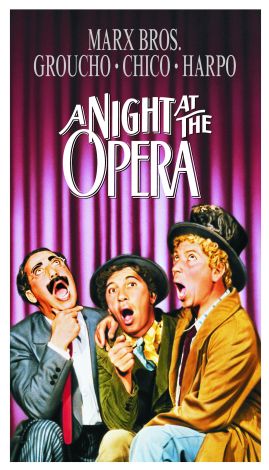Born in Germany, actor Sig Rumann studied electro-technology in college before returning to his native Hamburg to study acting. He worked his way up from bits to full leads in such theatrical centers as Stettin and Kiel before serving in World War I. Rumann came to New York in 1924 to appear in German-language plays. He was discovered simultaneously by comedian George Jessel, playwright George S. Kaufman, and critic Alexander Woollcott. He began chalking up an impressive list of stage roles, notably Baron Preysig in the 1930 Broadway production of Grand Hotel (in the role played by Wallace Beery in the 1932 film version). Rumann launched his film career at the advent of talkies, hitting his stride in the mid 1930s. During his years in Hollywood, he whittled down his stage name from Siegfried Rumann to plain Sig Ruman. The personification of Prussian pomposity, Rumann was a memorable foil for the Marx Brothers in A Night at the Opera (1935), A Day at the Races (1937), and A Night in Casablanca (1946). He also was a favorite of director Ernst Lubitsch, appearing in Ninotchka (1939) as a bombastic Soviet emissary and in To Be or Not to Be (1942) as the unforgettable "Concentration Camp Ehrardt." With the coming of World War II, Ruman found himself much in demand as thick-headed, sometimes sadistic Nazis. Oddly, in The Hitler Gang (1944), Rumann was cast in a comparatively sympathetic role, as the ailing and senile Von Hindenburg. After the war, Rumann was "adopted" by Lubitsch admirer Billy Wilder, who cast the actor in such roles as the deceptively good-natured Sgt. Schultz in Stalag 17 (1953) and a marinet doctor in The Fortune Cookie (1966); Wilder also used Rumann's voice to dub over the guttural intonations of German actor Hubert von Meyerinck in One, Two, Three (1961). In delicate health during his last two decades, Rumann occasionally accepted unbilled roles, such as the kindly pawnbroker in O. Henry's Full House (1952). During one of his heartier periods, he had a recurring part on the 1952 TV sitcom Life with Luigi. Rumann's last film appearance was as a shoe-pounding Russian UN delegate in Jerry Lewis' Way... Way Out (1967).
Sig Ruman
Share on


